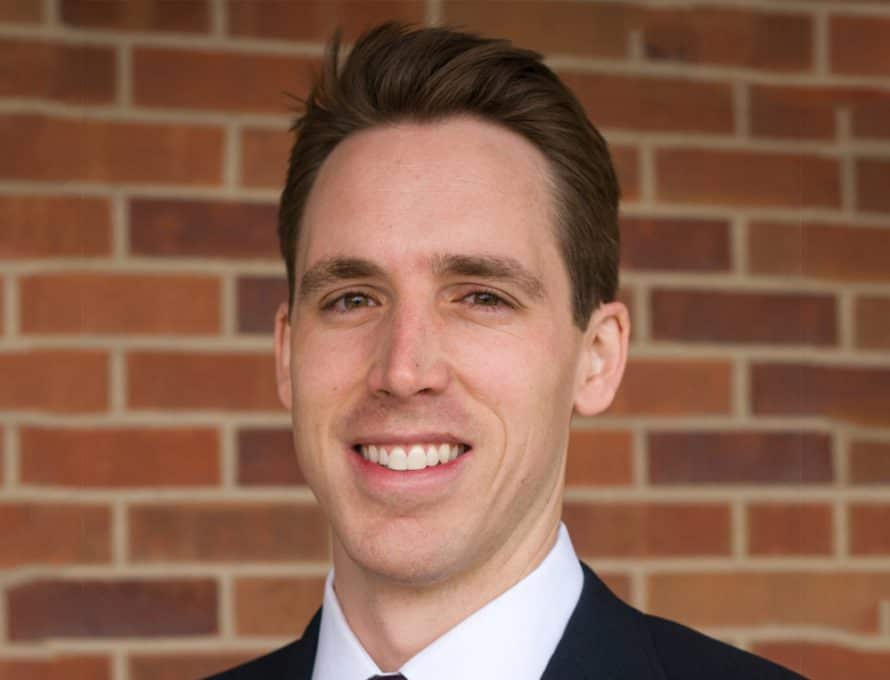Pathway Associate Editor Benjamin Hawkins interviewed attorney Joshua Hawley, a University of Missouri law school professor who was on the Beckett Fund legal team that defended Hobby Lobby before the U.S. Supreme Court, shortly after the high court announced a 5-4 decision in favor of Hobby Lobby in its case against the ObamaCare contraceptive mandate:
Hawkins: Why did the court decide the way it did?
Professor Hawley: Hobby Lobby prevailed in this case because the Green family had demonstrated that they run their business in accord with their religious convictions, that they always have, that it is important to them, and that the government has substantially burdened those faith convictions by trying to get them to pay for abortion inducing drugs–or, of course, threatening to fine them $475 million a year. That is the first part. And the second part is that Hobby Lobby prevailed because the court said the court said that the government had other ways to deliver these abortion-inducing drugs to women free of cost without forcing people of faith to violate their faith in doing so. And the government hasn’t even tried. The government, if it wants to provide these abortion inducing drugs, then the government should do so itself and is perfectly able to do so.
Hawkins: Would the court’s decision have differed if Hobby Lobby had not been consistent, across the board, in applying its faith convictions to the way it ran its business?
Professor Hawley: I think it would be. Part of the requirement under the Religious Freedom Restoration Act is that businesses, business people, anybody who brings a claim under the act has to show that they’re sincere in their religious faith. So consistency is a part of sincerity. If Hobby Lobby had all the sudden discovered their faith convictions yesterday, that would be very different.
Hawkins: What are the broader implications of the ruling for religious liberty, etc.?
Professor Hawley: Major, major win for religious liberty. It means that business people, who are people of faith, do not give up their religious liberty rights when they choose to start a business. That is a hugely important principle that the federal government, that the Obama administration, had challenged and that the court today reaffirmed. It means that people of faith can take their faith with them into the workplace and everywhere else, and they are protected when they do so.
Hawkins: What were the implications of the four dissenting opinions?
Professor Hawley: Well, I think it is interesting that only two justices were willing to rule on the ground that the government preferred. The government’s claim was that people like the Green family shouldn’t even be able to get into court to make a claim, and out of nine justices only two agreed with that. So I think that is something that is really quite extraordinary, and it shows you how extreme the government’s position was in this case. That is point number one. Point number two: The dissenters worry, Justice Ginsberg says, that this is a startling opinion, startlingly broad. That’s just not true. Actually, the opinion is modest. It is careful. It’s very targeted. And precisely because it is so modest and careful, it is a major, major win. It is a very solid win for religious freedom.
Hawkins: Could the Hobby Lobby victory be applied to other religious liberty cases—for example, cases where business owners don’t want to affirm same-sex marriage?
Professor Hawley: I think the answer is that the case stands for the proposition that business people who feel that their faith is being burdened, that they get to come into court and have their day at court and make this argument. So, you cannot keep them out of court just because they’re business folks. And that is going to apply to everybody from the cake baker, to kosher butchers, to halal food distributors, across the board. Now, how those future cases will come out will depend on the specific facts of the case, of course. But I think that the general proposition here is a really, really important one. And that is that you do not give up your religious liberty right if you choose to start a business.
Hawkins: Do we need to remain vigilant concerning religious liberty?
Professor Hawley: Absolutely. The fight continues. This is only one battle, and it is a big victory, but we have to press forward. And we’re going to press forward, defending people like Little Sisters of the Poor and other religious colleges and universities whose lawsuits are still out and pending. Of course, the administration is trying to force those folks to violate their religious faith, as well. … We need to press forward here in the state. In my view–I’m speaking now for myself–we need to make sure that state law also protects business people of conviction against state burdens and state intrusions. Today’s ruling applies to the federal government, but we ought to work to make sure it applies to states, as well.”
Hawkins: Do you have any other thoughts?
Professor Hawley: I would just reiterate that this is an across-the-board victory for Hobby Lobby. Hobby Lobby won on every question that was before the court. And it could not have been a better, more solid, more secure victory for religious freedom.

